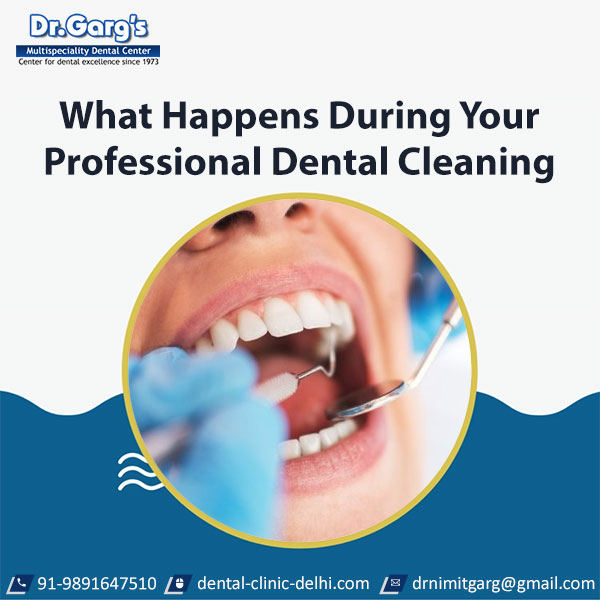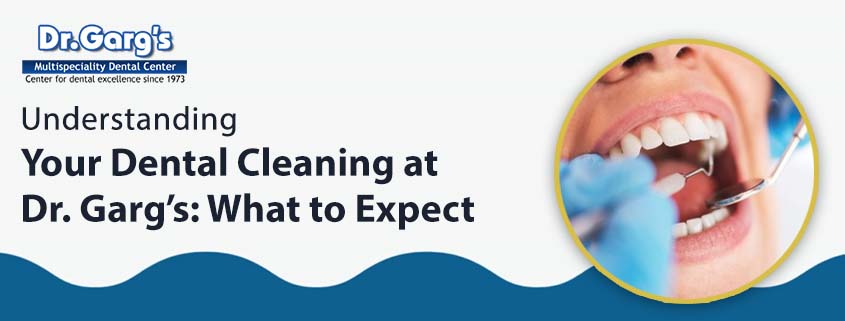What Happens During Your Professional Dental Cleaning
Dental Cleaning is like a routine servicing of your mouth. Most people are apprehensive getting regular cleanings done as they think that cleaning weakens the teeth by removing enamel from the tooth surface.

However, the truth is regular dental cleanings helps to remove plaque and calculus deposits from the teeth surface while they are still small and recent not to cause harm to the teeth and their supporting gum tissues. If left for a long time, these deposits decay the tooth structure and damage the teeth supporting tissues resulting in mobility of the teeth.
Another widely common misconception is that dental cleaning is very painful. In expert hands, it is common to experience some tooth sensitivity (but not pain).
Briefly described is the procedure of dental cleaning so as to have a clear picture in mind as to what to expect from teeth cleaning.
- The procedure starts with a thorough examination of the teeth and mouth to check and locate the plaque deposits. Probing around the gum margin may be done to check for bleeding gums. Teeth are also checked for cavities.
- A scaler is used to remove plaque/ calculus deposits from the tooth surface. The tip of the scaler vibrates on the tooth surface to dislodge any deposits from the tooth surface. Hand instruments may be used for planning the tooth surface left rough after removal of gross deposits.
- The surface of the teeth are then polished using a polishing brush and paste. This makes the teeth surface smooth and shiny so that it is less retentive to plaque. It also contains added fluoride.
Professional cleanings are usually advised every 6 months. However, your treating dentist may devise an individualized maintenance program based on your oral condition. Followed thoroughly, it goes a long way in maintaining the health of gums and teeth.
Have questions about your oral health? Reach out to our dental experts for personalized advice.




Leave a Reply
Want to join the discussion?Feel free to contribute!